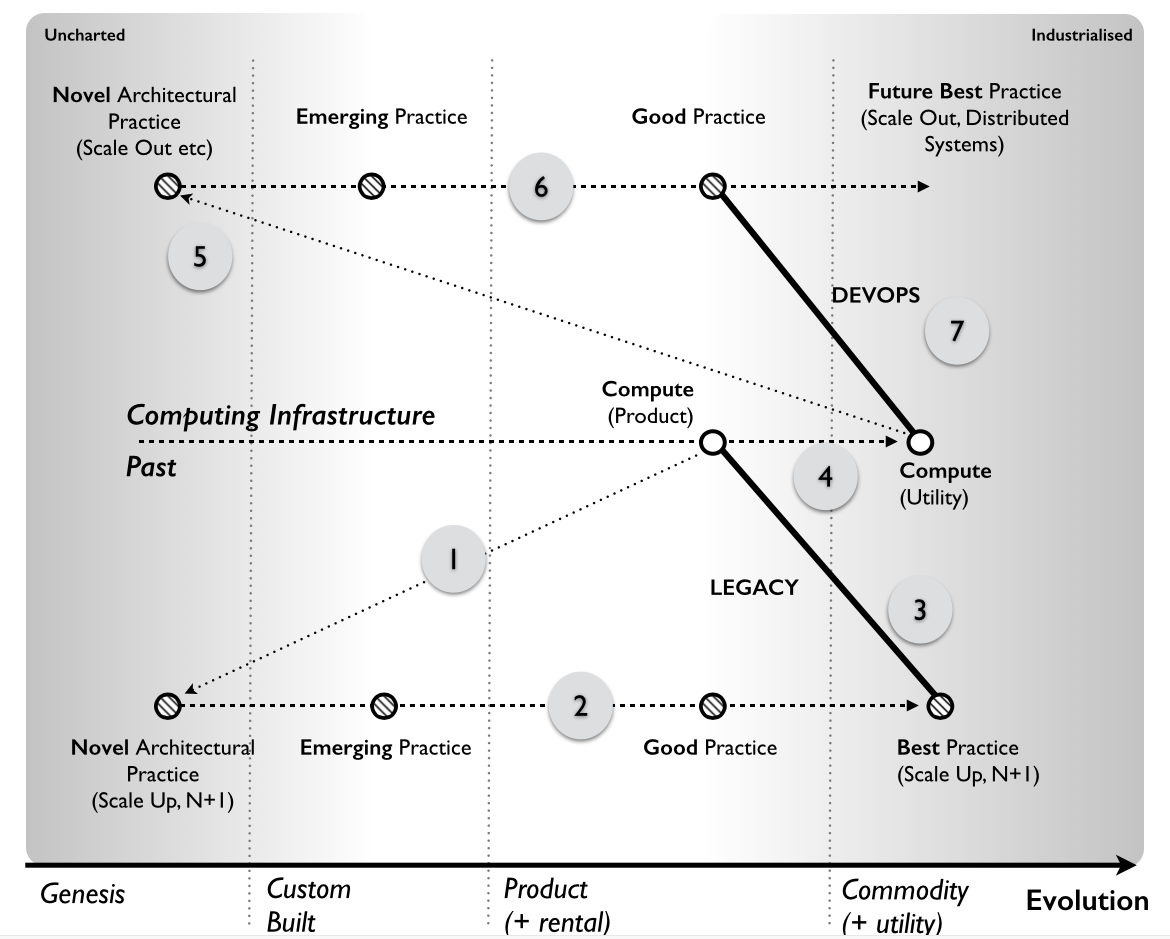Sections
After Paris
The horrific events in Paris represent a watershed moment for European unity when reality hit home in the most terrible way that axiomatic belief in ever upward human progress should never be taken as given without struggle:
“The assumption of an automatically better future for the next generation is gone in much of the west.”
At this dangerous time, what we need now is more fellowship in others not necessarily more leadership:
The sentiment, that is, of sharing a common predicament even if we don’t share the same history, experience, or fate. A sentiment most necessary precisely when fragmentation and fundamentalism are far more common. Fellowship is an antidote to both, an alternative to otherness that does not imply sameness.
It’s a view shared by a French ex-hostage of IS, Nicholas Hénin who is clear on what they are after, namely create chaos and disorder:
They will be heartened by every sign of overreaction, of division, of fear, of racism, of xenophobia; they will be drawn to any examples of ugliness on social media.
Andrew Neil on This Week doesn’t think much of their chances and outlined what’s at stake in a blistering two minute Message:
One of the things that will inevitably be talked about in the wake of the Paris attacks is the role of technology in the rise of IS. It seems clear that OTT Messaging apps with integrated 2P encryption will face new scrutiny with Telegram already implicated and scrambling to lock the stable door. There are already calls in the UK to ‘fast-track’ the Investigatory Powers Bill as a result. It probably won’t help the cause of objectors to have Edward Snowden onside:
https://twitter.com/Snowden/status/661267531320152064/
The news that Anonymous are going to target IS also got a lot of coverage but there are suggestions that their involvement to date has had little material impact. Tragically in terms of unity, in many respects IS is clearly more effective at European integration than the EU.
Devices and Manufacturers
- FastCompany on where Apple’s Head of Retail, Angela Ahrendts, is taking the company’s stores next after reportedly spending two years “listening and learning” to staff. Two of the ideas she outlines have a distinctly Millennial touch – retail staff to learning coding and consume short video briefings:
One of the first things she decided to do was create a better way to communicate with her 60,000 Apple retail employees. “My kids were visiting from London and all they were doing in the car was WhatsApp and Snapchat,” she says. “It hit me: That’s the way we should communicate.” She now shares a video with her employees every week—three thoughts in under three minutes, she says—so her employees can feel more involved with Apple’s decision-making. … She also recently connected with Craig Federighi, Apple’s senior vice president of software engineering, for help coming up with a “curriculum to teach code in stores.”
- Mozilla have now released their Firefox OS 2.5 Developer Preview, an experimental Android app that lets you experience the platform without hacking your phone. Although “shoehorning an OS on top of another OS” is a great technical achievement, as with the case with Ubuntu Touch, it’s not entire clear what the point of doing so would be for the average Android user.

- A monster quadcore LTE Android 5.1 based phone from China for 140 euro:
Apps and Services
- Ironically with all the focus on P2P encrypted messaging, WhatsApp still doesn’t fully support it. This Medium post suggests it may be more convenient for data-mining purposes not to do so.
- Facebook’s Notify app sounds like the latest attempt to reinvent RSS:
Facebook has basically taken the RSS feeds publishers used to have on their websites, renamed them, and made it so they can send push notifications to their followers’ phones instead of quietly updating in the background of those followers’ RSS readers.

- Google’s About Me tool is handy for getting a dashboard view of the information has about you that you’re currently publicly sharing about yourself.
- Good HBR guide on how to effectively deal with business cards from conferences. I have pages of A4 with stapled cards on them. You, however, could avoid that by using apps and social media to cement connections at the risk of coming across as over-zealous.
Security
- Amazon have introduced two-factor authentication (2FA) with Google Authenticator support. Instagram users, meanwhile, are still waiting.
- In addition to 2FA, it’s essential to use different passwords for different accounts aided by a password manager to avoid the inevitable:
The way we daisy-chain accounts, with our email address doubling as a universal username, creates a single point of failure that can be exploited with devastating results. Thanks to an explosion of personal information being stored in the cloud, tricking customer service agents into resetting passwords has never been easier. All a hacker has to do is use personal information that’s publicly available on one service to gain entry into another.
- Your unhashable fingerprints won’t help you – as Hackaday point out, they’re a really lousy password being both easy to copy and impossible to change:
If your work is using your fingerprint for authentication, your password is probably on your monitor right now.
- Your heart in fact would be a much better bet in combination with other biometrics.

- According to research highlighted by the Register, “Full-disk encryption on mobile devices is nowhere near as secure as commonly believed and Android offers less granular control than iOS“.
Cloud and DevOps
- AWS is a $7 billion juggernaut. This LinkedIn Pulse article uses that to explore “seven secrets” of their cloud though the author isn’t able to find out very much from a rather stone-faced Andy Jassy.
- Great rediscovered 2015 post from the ever-excellent Simon Wardley outlining why there’s nothing structurally that radical about devops really. It started out as a novel practice moving to mainstream best practice and will eventually be superceded by whatever comes next. We’ve been here before and will be here again:

- For now, it remains a hot technology. Serving to underline that mindshare, news that Ian Murdock, the “ian” in Debian, is joining Docker.
- At New Relic’s FutureStack conference, their CEO talked up the increased data retention window their logging tool now supports. ReadWrite were somewhat tongue in cheek about the notion that if you collect it all on the cloud (18 billion events per day and rising) eventually machine learning will sort the digital wheat from the chaff:
New Relic’s quest to store all of our application logs is of a piece with, say, Google Photos’ push to be an unfillable digital shoebox, or Amazon’s urge to list everything that might be sold.
- Nexmo now support ‘phone number verification as a service‘ through an API.
- Wired on the ever greater digital precariousness that comes with having Null as your surname:
“I’ve been embroiled in a cordial email battle with Bank of America, literally for years, over my email address, which is simply null@nullmedia.com. Using null as a mailbox name simply does not work at B of A.”

Wearables and the Internet of Things
- Fossil bought Misfit for $260million in yet another sign of the perceived growth potential for pure wearable propositions:
“We believe it isn’t about function. It is about function and design and branding, We see tremendous growth opportunity and that a lot of our jewelry and watches could be connected devices”
- Misfit like Fitbit and many others in the nascent wearable space are critically dependent on Bluetooth. And right on cue, this venerable technology standard is due to get bigger range and mesh networking support in 2016.
- Why banks “should prepare for the Internet of Things“. It will usher in massive disruption in real-time inventory reporting, digital payments and loyalty scheme construction.
- Manufacturers too have a huge opportunity to benefit from smart application of IoT and join the likes of Retail and Banking in the vanguard:

- This fascinating Al Jazeera film profiles Massimo Banzi, the Italian co-creator of Arduino in Shenzen. In it he encounters the local Chinese Maker enthusiasts and providing some insights into why this tiny board represents a $100 marketplace and why Open Source is the key to its success:
- In what could be a major catalyst for a whole new IoT sector built on open source technology like OpenWRT, the FCC has announced it will permit custom Wifi router software modification.
Artificial Intelligence
- Ruede de Waele on why Google’s open source TensorFlow Machine Learning platform constitutes the “Android of AI”. His post contains a handy mini round-up of some of the best TensorFlow critique.
- Not wanting to be left behind, Microsoft have pushed their DMTK (Distributed Machine Learning Kit) to Github. InfoQ provided a brief outline of its key features.
- Google autonomous vehicles have driven 1.2 million miles without getting a ticket.
- The message from the MIT Technology Review conference was clear – the future of tech lies in the confluence of “data, privacy and robots” or Big Data, Security and Artificial Intelligence.
Science
- NewScientist published an article entitled “7 journeys of a lifetime” outlining several surprising ways in which you are a child of the cosmos.

- Zero G can impair vision. Nasa are conducting a study to find out why:
- Fascinating profile of Hollywood legend Hedy Lamarr who had a remarkable sideline as a citizen scientist who patented an approach for spread spectrum signal transmission that underpins almost all modern wireless comms.
Product Management
- Must read post from HBR on what really makes customers buy a product. It seems that peer observation is a significantly more important factor than “word of mouth” when it comes to consumer electronics and technology.

Startups, Unicorns and Innovation
- More evidence of an approaching “unicorn winter” in this long-form FT podcast analysis and from within the VC community:
There are growing signs that it’s getting tougher for private tech firms to raise money, particularly in sectors that interact with the physical world, such as food and grocery delivery companies.
- Instead of writing pointless apps pandering to the “minor inconveniences of the cash-rich and time-poor” and wrapping it up with data science ninja narrative, this Guardian opinion piece suggests that “our best minds should be solving real problems“:
Many of these companies will fail, but here’s the real tragedy: the time and talent wasted on problems that aren’t really problems at all. There is something demented about such a huge flowering of creativity and innovation being focused on the minor inconveniences of the cash-rich and time-poor.
- Good a16z post on the eternal struggle between startups and incumbents. The advice here suggests that the winning strategy is to be too boring for incumbents to notice until it’s too late:
The battle between every startup and incumbent comes down to whether the startup gets distribution before the incumbent gets innovation.
- Tech is “eating media” using software-defined content platforms. A journalist asks what’s next?
Digital Learning
- Learning platform Udacity just secured financing that values it at over $1billion making it the first MOOC unicorn. Fortune provided some insight on what the extra cash will be spent upon.
- Future of Work episode showcasing another leading MOOC provider Udemy:
- Coding becomes a game with CodinGame:
The logic behind each exercise is tied to an actual game so that you get visual feedback and an actual reward when you solve an exercise.
- Minecraft’s hour of code tutorial approaches the task from the opposite angle – a game becomes the medium to teach coding.

Digital Society and Culture
- Facebook is now an integral part of everyday life for so many people around the world. Nevertheless there has been something of a fashion recently to advertise and promote abstinence from its tentacles. It’s all too much for one peeved Guardian blogger who suggests anyone doing so shouldn’t feel ‘superior’ because they’re effectively missing out on modern life. Think I’ll continue to stay off it myself though not out of smugness, just time.
All media is social media and everyone is a critic. We live in constant TripAdvisor mode … I am a waste of space that you could not even be bothered to read, simply to slag off. Because there is no comment without comment. If a column is not retweeted does it even exist?
- KernelMag outline why Hello Barbie is no mere toy and in fact raises all sorts of questions over privacy and innocence in an age of “networked omnipresence”:
It’s important to remember that the introduction of Hello Barbie is just one part of a new interactive landscape in which nearly everything kids do is recorded and uploaded somewhere. Some parents have balked at such networked omnipresence, refusing to post any photos or otherwise identifying information of their kids online.
- NYT on why you should plan your digital legacy early and update it often.
- 80’s music legend Prince was recently interviewed by the Guardian, if that’s the right term, in his native Minneapolis. He comes across as an elusive and impish character, sharp as a tack, who doesn’t have much time for Apple Music et al:
Tell me a musician who’s got rich off digital sales. Apple’s doing pretty good though, right?”
- Hackaday claim there is no denser music than Black Midi citing “Pi, the song with 3.1415 million notes” as an example. It’s worth checking it out to see this effect in action:
the Black MIDI pieces play so many notes at once that we can’t really perceive them as such, and they end up sounding like a single synthetic timbre, and it ends up sounding even more like a chiptune than a piano. It’s a neat effect.


